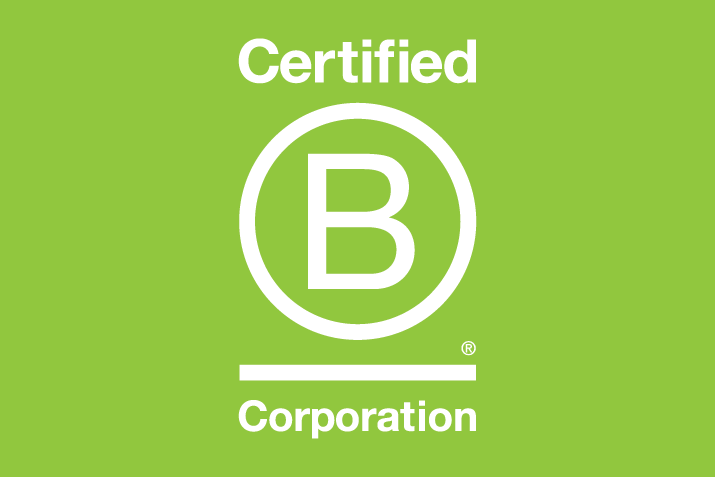How does operating a company as a b corporation affect your decision making? Quite a bit as we learned on May 27 when we got to sit down with 3 B-Corp leaders. Leslie Silverglide, Co-founder + CEO of MIXT, Angela McElwee, President and CEO of Gaia Herbs, and Ben Conniff, Co-Founder and Chief Brand Officer of Luke’s Lobster to learn how they navigated their teams and communities through the turbulent COVID19 waters.
Key traits that lead to success among all stakeholders
There are three traits that connected the three leaders: trust both internally with their teams as well as with their customers, transparency, and a deep-felt responsibility and commitment to being a steward of the environment. These three characteristics run through and impacted many of their key decisions.
Hard circumstances lead to new business opportunities
Leslie and Ben are facing different supply challenges and business realities than Angela. Leslie and Ben have had to close locations due to local health requirements brought on by the virus which has lead to lay-offs or furloughs. They had to act fast, literally pivot on a dime as it were.
Each became more nimble and found more space to rethink their business. In the case of Luke’s Lobster, this resulted in what is fast becoming a successful e-commerce business and diversified offering, expanding into other shellfish and fish. For Mixt, it meant amplifying their already solid carry-out business, and taking whatever product they couldn’t use at the restaurant and build a dynamic community and frontline worker food program.
Short term fix or long term vision?
Angela and Gaia Herbs, found themselves at the other end of the spectrum. With a record 300-400% growth in a month, as more and more people turned to herbal health remedies. Gaia began to run out of key products, such as echinacea. There was such a run on the herb that Gaia’s long trusted farming partners couldn’t keep up with the demand. Could Gaia find alternatives? Sure, but at the risk of sacrificing the quality. Not an option.
Mixt held true to its core competency – creating healthy meals, rather than expanding to be a grocery outlet as some restaurants have become. Would this have kept a few more employees on? Yes, but at the risk of losing the business in the long run.
Hardest decision
Angela found herself in the unenviable position of risking angering customers by not doing the quick fix of offering products they loved most. Really though, had she offered the quick fix, it would have been a disservice as the product would not reach Gaia’s standards.
In turn, Ben and Leslie had to lay-off a large percentage of their teams as well as stop working with key partners. Luke’s Lobsters works with 200 lobstermen who predominantly fish for only for them, they needed to make hard short term choices so that they could pay the lobstermen who so dearly depend upon them. Because both of these leaders have companies known for their trust and transparency, vendors and team members understood. As they’ve been able to re-hire people, former employees are coming back gladly.
Biggest Lesson
The pressure cooker that is COVID 19 has forced each company to become razor-focused. Each of the leaders came to realize just how nimble and agile the teams became. Communication and transparency are key in keeping the fraying nerves of teams from coming completely undone.
Will B-Corps become the new normal of business?
Hopefully. Business schools are showing that more and more graduates are choosing to either join purpose-driven companies over traditional organizations or to start their own social mission operations. Purpose-driven companies are beginning to enjoy greater long term returns, less turn-over, enjoying key talent coming to join them. Its regenerative economics in action.
There are a few different purpose-driven legal entity options now for companies of the future. B-corporations, hybrid models, ESOPs. Later this summer we will be holding an education series with legal experts who will share the pros and cons of each model.
How to support
As B-Corporations it is no surprise that each are playing active roles in contributing to their communities. This is where each of the leaders activate their desire to teach the community about the environment and its commitment to it. Here are specific ways that you can support their respective efforts.
MIXT
When you order online, add Help Feed Someone a Healthy meal ($15) and this will go towards doing just that. Any extra will go towards supporting Chefs to end Hunger project
Luke’s Lobster
Luke’s “Keeper Fund” is their charitable collaboration fund which we operate in partnership with The Ocean Foundation, the purpose being to keep coastal waterways healthy and strengthen opportunities for fishing communities.
Gaia Herbs
Gaia Herbs has started a special small grants program enabling individuals or non-profits who are introducing herbal supplements to underserved communities





